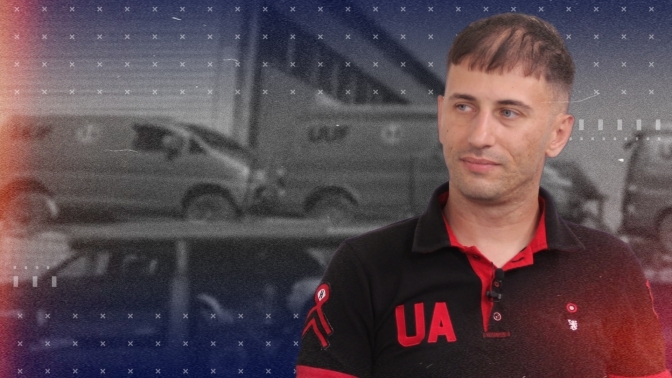
[For urgent updates please follow Ukrainian Freedom News on Telegram]
How long does it take for volunteers from the start of fundraising to purchasing a car and transferring it to the military? What problems do they face, and why do we need re-Ukrainisation – Sviatoslav Litynskyi, doctor of philosophy, public figure and volunteer explained in our «Topic of the Week» video project.
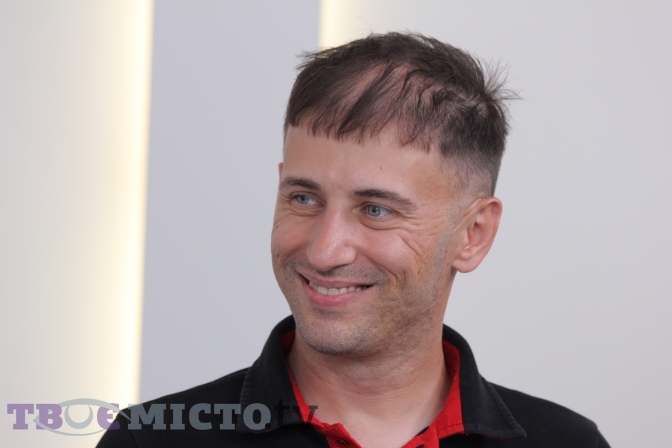
You do a lot of things, volunteering in particular. Is there enough time for professional activities, are you not tired?
We live in such a time that working like this is a norm. If we stop and start thinking that we are tired, then we will lose statehood, as it happened during the two world wars. How did they end? After the first one, all writers and cultural figures were shot, and the Holodomor took place. As a result of the Second World War, a million Ukrainians died with weapons in their hands, and another five or six million were shot by various parties, mostly by Russia. So if we do nothing, we will get the same result. But I still want to live in Ukraine.
Many meanings are attached to the words «volunteer», «charity organization», and «educational initiative». What do you call it?
Assistance to the state, to the army.
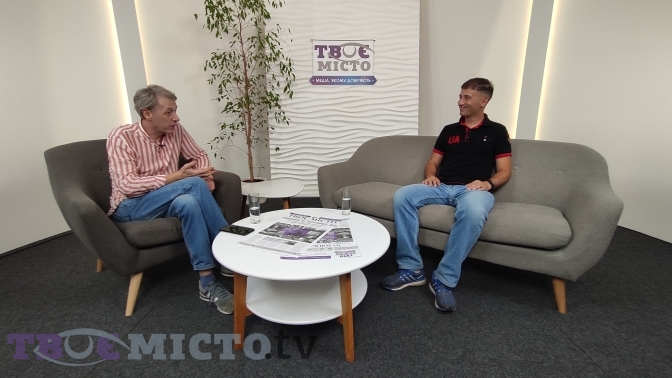
You brought 250 cars to Ukraine for the needs of the Armed Forces. How did you start doing this, how much have the activities and requests changed since February 24?
Since 2014, when the war actually started, we had requests for thermal imagers and night vision devices. I applied to this, one might say, passed the training stage. Then I resumed this activity after February 24, with the start of a full-scale invasion. Not from the first days, because then I was indecisive. I didn’t know what I should do, I was under stress, observing the situation. But on March 2, my acquaintance joined the Special Operations Forces of the Ukrainian Army. He already had military experience and said that it would be good to have a bus and a four-wheel drive car. On the same day in Lviv, we bought them with our own money and handed over to him. After that, many requests poured in. People contacted me because they said that I was a bit media-famous, they pushed me to raise money, to buy on a larger scale – that’s how everything turned. I announced the collection and literally in two or three hours collected 200 or even 300 thousand hryvnias. I panicked a little, realising that it was someone else’s money, that it needed clear reporting and work. I stopped the collection, explained that I would buy cars, report back and only then open it again. During that time, there were many friends and acquaintances, ready to support. I also met many people from Poland, Germany, and England. It was possible to build a certain scheme, establish communication. We brought two or three full truckloads of cars from Germany, two more from England, and dozens of cars from Poland.
Earlier, you wrote how to find a car, agree on its purchase and delivery, and send it [the post for August 12 can be read at the link]. This is quite a serious description of how it happens.
Right. It’s cheaper to buy a good car abroad. You can raise money to buy a car of this level in Ukraine. But you have to be prepared for the fact that it will be almost destroyed in a month, and there are almost no such cars here. Therefore, most of them were bought in Poland, which is the closest to us, then in Germany, the northern countries, and England, although it takes a long time to transport them from there. Now we buy in France. We are looking for where it will be cheaper so that the car is in more or less normal condition and it can be brought. It’s problematic to pay for such purchases abroad, because we buy from private individuals, and they want to receive payment in cash, not in a bank account. Often, it happens that a person is ready to sell a car for 25,000 zlotys, but writes in the contract that he is selling it for 17,000 because he wants to illegally reduce the tax. And I accept this, because I have to buy where it is cheaper, to effectively use people’s money.
Now four-wheel drive cars or pickups cost from 16 to 30 thousand zlotys. How to get money for them abroad? If you withdraw 16 thousand from the card on which money is collected, using a Polish ATM, it would take 10 weeks. That is, you have to travel to Poland and back for almost three months, or be there to withdraw cash, buy and bring just one car. Therefore, it’s necessary to come up with schemes to get around this in order to help the army and the state. I described one of them in the aforementioned post: I transferred money to friends, they withdrew it from ATMs in the currency of the country they were living in, transferred it to the account of another friend who bought a car.
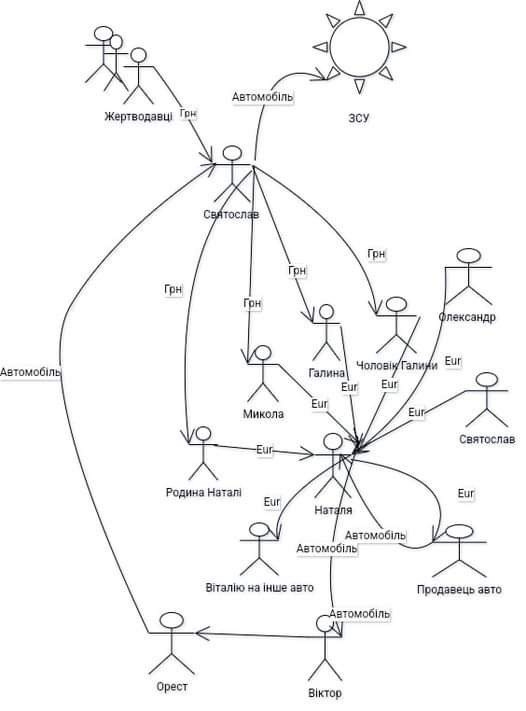
Now we use a different scheme. I understand that this is a bad word, but anyway. I collect cards from family and friends and withdraw zlotys from them in Poland. In this way, it is possible to get almost the entire amount necessary for the purchase of a car in two weeks or even a Sunday, when the limit of one week is still valid, and Monday, when the limit of the next one starts to apply.
There have been many reports of suspicions being brought against those involved in helping the army, because they seem to be misusing resources. In any business, there are those who try to act dishonestly. How do you rate it, does it interfere with your work?
Of course it does! How can we collect money on a car? Among friends, acquaintances, partly even from units that need a car. I ask the boys to collect among their families, because they are more trusted. Under the current conditions, such fundraising will last at least two weeks. Then, we go abroad and convert these funds. Next, look for a car, look at three options, which will take another week. And then bring it here, repair it and hand it over. That is, from start to finish, in the best case, it takes a month.
How to optimize this process? Many volunteers buy cars with their own money and repair them. While this is going on, those who need a car apply immediately, because they are already preparing to go to the front line. Having taken the previous steps and not making money from it, the volunteers would be happy to take the necessary amount from people and buy a new car. In this case, they will have something to give to the next ones who ask for help. Thus, the period from the announcement of the need to receipt is reduced from a month or two to a week.
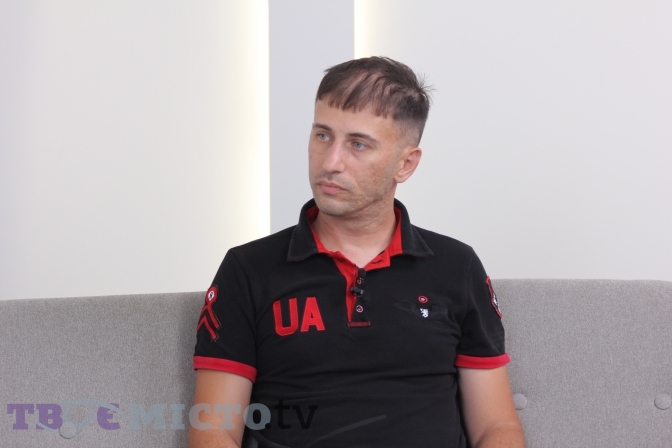
Is it beneficial for the state to have equipment in the army faster? To a large extent. And for the army? Just as well. But is it beneficial for the police? No, because the police don’t get a penny from it, unlike service centres, from which they have millions of hryvnias per day.
What did the police decide to do in such cases, when the volunteers prepared to hand over another car to the army so quickly? I will tell you how it happens in other cities. A person who is responsible for equipment in the army comes and says: «Everything in our unit burnt down, we need a car. Maybe you have one?» Volunteers were preparing it for another unit, so they call there and ask if it’s possible to transfer this car to the new request and prepare a replacement in a week or two. The military usually agrees and only asks to take the funds from that beggar and buy a vehicle for them.
However, according to the law, it turns out that this is how the sale of humanitarian aid took place. Because the car was imported without duty and declared as humanitarian aid. The legislator thinks that this help was provided by a conditional Uncle Sam from America, who gave it for free, and here someone is selling it. In fact, it’s not true, because another group of people raised money for this car, or a person who decided to speed up the help of the army and gave his money. But sudeenly it turns out that this person meets the criterion of the article of the Criminal Code and should be imprisoned for five to seven years with full confiscation of the property acquired during his life.
Will he then think about how to help the army as soon as possible? Probably not. Will he leave volunteering altogether when he hears that one or the other has been brought to justice for such a case? Most will leave. I also thought that I should leave, because it turns out that the state and the army do not need my work. Probably, they are already provided with everything if they started bringing volunteers to justice.
Let’s try to understand from the inside why this is happening. Did representatives of the police, Security Service, or other law enforcement agencies talk to you? Perhaps they warned about provocateurs, changes in legislation, advised how to do better so that no one would have trouble later?
It’s actually very strange. The state now stands on the shoulders of both the army and volunteers. And should take care of the first and the second. Analyse which volunteers and foundations are available to hire a lawyer. I would gladly talk to a person from the state, the regional council, or the Security Service of Ukraine, who would say: «Sviatoslav, look, you bring some benefit. But according to the law it should be done this way, here you should do it differently.» She would advise something to increase work efficiency. Our life and statehood are based on what we can do to help now. If you remove this «pillar» of volunteering, the probability of losing statehood increases significantly. But instead of supporting, explaining, legislatively helping, the state for some reason knocks out that «pillar». I don’t know if this is initiated by the central power or simply due to the greed of the grassroots, who are used to opening criminal cases and then getting «kickbacks» to close them.
There’s no desire to believe it, because it seems that people change. What if it’s not the military who ask for help? How do you choose who to work with so as not to run into provocateurs?
We transferred the first 20 cars purchased from the assembly line to the Lviv 80th Division, another 10-15 to the 24th and 53rd Divisions. Up to 15 cars were given to police units that actively participate in the army. When there are almost no resources or only enough for half a car, I honestly say: «We have this amount. If you manage to collect the funds, I can help, and we will buy a car.» When there were more of them, we tried to keep the priority, to help those who have been at the front longer and, in our subjective opinion, are solving something. These are Special Operations Forces, anti-tank units.
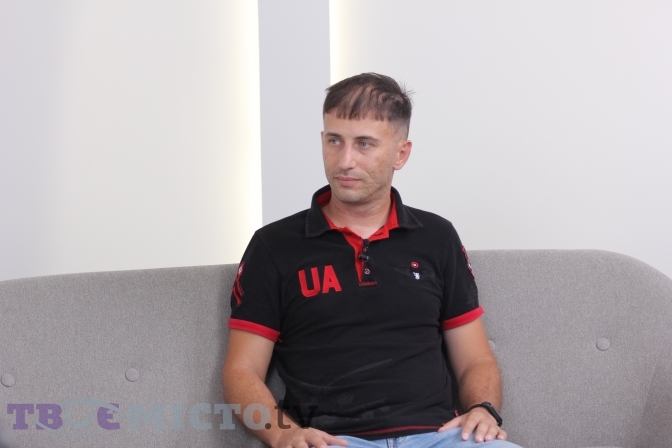
That is, do you advise giving preference to official structures?
Yes, definitely.
Based on your experience, what still needs to be done to normalise this process? Because a lot of such help will be needed.
In the process of buying cars, we face obstacles during the conversion of hryvnias into currency and the lack of government support. The only thing it did was free customs clearance when declaring humanitarian aid. I would like help from the state, if not in the organization, then at least with advice.
I cannot ignore one more security issue, regarding the Ukrainian language, which you actively defended. It’s difficult to count the number of brands Ukrainianised in the course of their activity. What do you call it today – Ukrainisation or de-russification?
This is re-Ukrainisation, the return of the Ukrainian language to Ukraine. From 1991 to 2014, many people understood that language is our security and our border. All territories conquered by Russia from 2014 to the beginning of full-scale aggression were clearly included in the «language map» of the population census. 90 percent of territories where Ukrainian was not considered a native language were annexed and occupied. Those who could analyse it tried to protect it with private or legislative initiatives. Thank God, they passed a law on language, but this is not enough.
Regarding the language factor: now, re-Ukrainisation is actively underway, many people have started speaking Ukrainian. It is sad that we are paying a high, albeit proportionate, price for this. We do not want to postpone problems and then solve them with the blood of our people.
Do you see the main dangerous language insinuations that can stir society the wrong way?
The most surprising thing is that the state continues to support the Russian-language TV channel. What is it for? Why is it broadcast to the domestic Ukrainian audience? It’s very bad.
Lower-level officials, contrary to the law, still allow themselves to convey official information in a foreign language. This has been going on, albeit on a smaller scale, since the time of Minister Avakov, against whom I won a court case [on September 14, 2015, through the court, Sviatoslav Litynskyi obtained the obligation of the Ministry of Internal Affairs to provide him with a Ukrainian translation of the Russian-language speech of the then minister.] But there have also been very significant positive changes for our language and, accordingly, security.
You are a supporter of expanding the everyday use of the language, but this is not always appreciated. Russian continues to be the language of international communication, Russians interpret it as follows: those territories where it is present are considered the territories of the Russian state or a target for its missiles. Can we at least demand that Russian be stripped of its status as an official UN language?
Of course, because it is used as a pretext for aggression and annexation of other territories. Russia should not be a member of the UN at all, it is not included in the charter of this organization. But Ukraine is there.
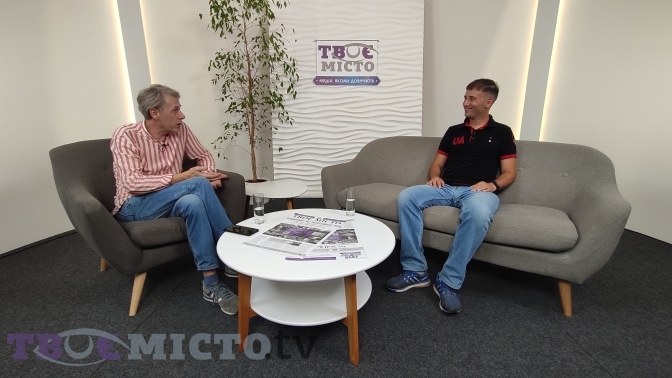
How real is such a mechanism?
I am sure that our Ministry of Foreign Affairs should move it. There is still a lot of convergence. Even on railway tickets from Ukraine to Poland, «Ukrzaliznytsia» provides information in Russian, English, German, but there is no Ukrainian. I turned to them about this – they referred to some international agreement from, it seems, 1945, and also to the fact that it is the language of the UN, so they have to add it. This is exactly what the Ministry of Foreign Affairs should oppose.
Sergiy Smirnov spoke
Text: Marichka Ilyina, translated by Vitalii Holich
Photo: Dmytro Taradayka
Full or partial republication of the text without the written consent of the editors is prohibited and considered a violation of copyright.
Follow us on Facebook and Instagram. Lviv Now is an English-language website for Lviv, Ukraine’s «tech-friendly cultural hub.» It is produced by Tvoe Misto («Your City») media-hub, which also hosts regular problem-solving public forums to benefit the city and its people.











